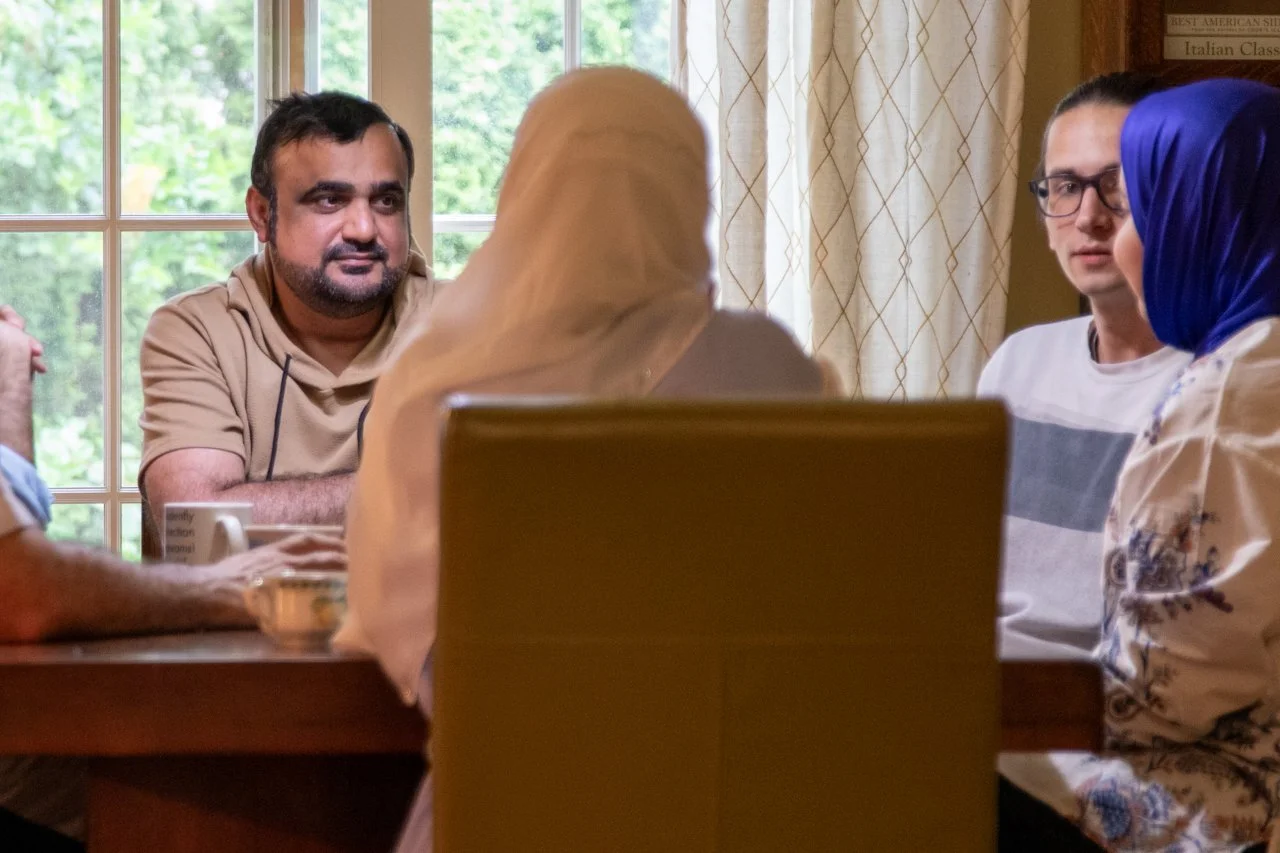Tips For More Productive Thanksgiving Table Talk
Whether it is at an American Thanksgiving dinner or at the workplace, we are often told to avoid certain topics of conversation. It doesn’t have to be that way though. And it shouldn’t. We should feel empowered to talk about the things important to us, especially with people who are also important to us. Our differences don’t need to divide us.
As Jonah Pesner and Hurmon Hamilton summarize in their chapter included in My Neighbor’s Faith, communities will encounter tension and that tension provides an opportunity to become a stronger community.
They write, “In a community, the relationships are as important as the shared purpose. They transcend specific issues; the whole is greater than the sum of the parts… In community, we find inspiration, comfort, and joy. Sometimes, in community there is tension. The test of a community is its ability to deal with such tensions productively, and strengthen the relationships despite or even because of it.”
Here are four tips to help you guide conversation at this year’s Thanksgiving table and beyond.
Prioritize relationships over debate.
The most important tip to any table talk is to always prioritize your relationship(s) with any conversation partner. Relationships are mirco-communities. That means that tensions or inflection points will arise. This is even more true of long-term and deep relationships. And that’s a fact of life because no two people see the world the exact same way.
Sometimes, relationships aren’t ready for difficult dialogue and that’s okay. It’s good to know and acknowledge this and you can always return to the topic once the relationship is resilient enough.
Only speak for yourself. And only ask others to speak for themselves.
Another really important tip is to remember that we are only able to fully speak for ourselves and our own experiences. The good news is that you should always feel fully empowered to speak from your own experiences! You are only an expert on your life.
Being careful about this will help avoid many unnecessary clashes.
The havruta practices.
An important aspect of traditional Jewish education called havruta might have something to teach us about learning from one another in dialogue. Traditionally used to study Jewish text, havruta literally translates to “friendship” or “partnership” in the singular and “study pairs” in the plural. It’s a form of paired study that reminds us that we have more to learn together than we are capable of learning on our own.
Jewish academics Orit Kent and Elie Holzer discern and summarize six defining practices in the tradition.
Listening
Articulating
Wondering
Focusing
Supporting
Challenging
Even if you will never directly take part in a traditional havruta, these principles can help nurture civic dialogue, mutual learning, and deeper relationships.
Leave room to learn from each other.
Conversations never end well when we enter with closed minds, shut-off to the possibility of growing from our encounters.
Try this in your next table talk or dialogue. When a difficult topic comes up, one that maybe you’d normally either leave the room for or respond from a position of anger, look for an opportunity to ask a question of genuine curiosity. This is not a time to ask a gotcha question but rather a chance to put yourself further into the other person’s shoes and to understand where they are coming from. A good question to ask: could you tell me about the process or experience that led you to hold that belief/perspective?
You might be surprised at how much you can learn from people very different from yourself!
Put these tips into practice using our THANKSGIVING TABLE TALK GUIDE USING AN ARTS BASED METHOD THAT WILL SAVE YOUR FRIENDS AND FAMILY FROM DISASTROUS DIALOGUE.

